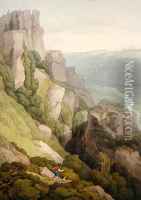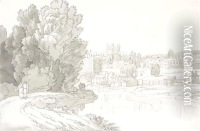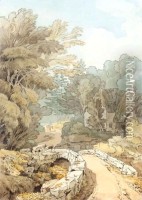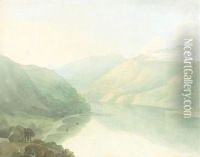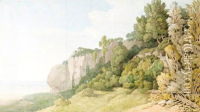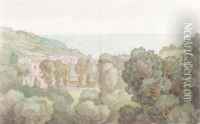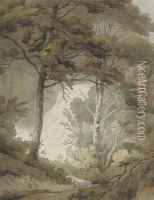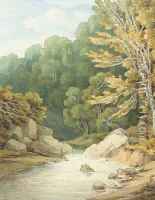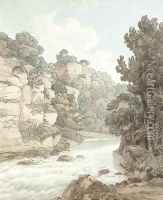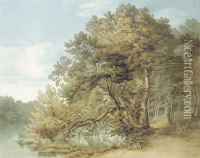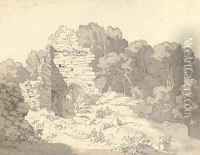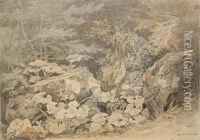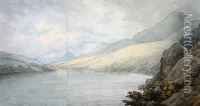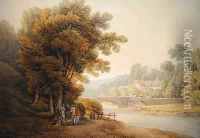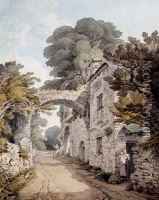John White Abbott Paintings
John White Abbott was an English physician and painter who is remembered primarily for his works as an amateur artist in the late 18th and early 19th centuries. Born on May 13, 1763, in Exeter, Devon, Abbott developed an interest in art at a young age, alongside his medical career.
Despite his professional focus on medicine, Abbott pursued art with considerable passion and was largely self-taught. He was influenced by the works of the renowned landscape painter Francis Towne, who also hailed from Exeter. Abbott’s relationship with Towne was significant; not only did Towne provide him with guidance, but Abbott collected many of his mentor's works, which later were donated to the British Museum by his descendants.
Abbott specialized in watercolor landscapes that often depicted the Devon and Cornwall regions. His style was characterized by detailed and picturesque representations, capturing the serene beauty of the English countryside. He was adept at conveying the subtleties of light and atmosphere in his paintings, which added a lyrical quality to his work.
Although he never became a professional artist, Abbott’s contributions to art were recognized by his contemporaries. He exhibited at the Royal Academy and was associated with the Society of Painters in Water-Colours. His paintings were appreciated for their technical skill and the delicate treatment of nature.
After a long life that bridged art and medicine, John White Abbott passed away on June 24, 1851, in Exeter. His legacy continues through his artworks, which are held in various institutions, including the British Museum and the Victoria and Albert Museum. Abbott remains a notable figure in the history of British watercolor painting, and his works are still studied and enjoyed for their pastoral charm and historical value.
